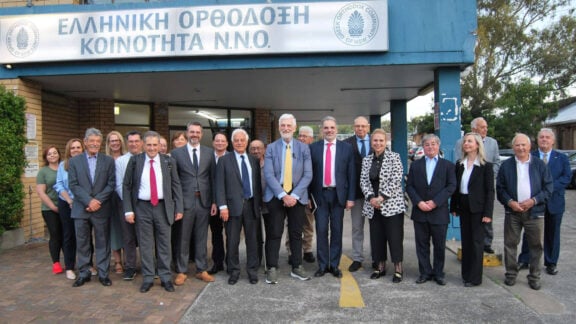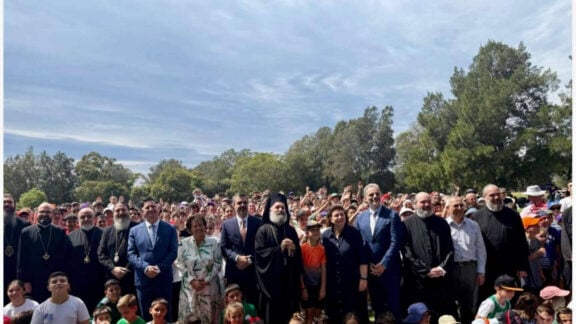The agreement signed by the governments of Greece and the Former Yugoslav Republic of Macedonia, which sees the latter adopting the name ‘North Macedonia’ was approved on Tuesday by the Hellenic Parliaments joint standing committee on Defence and Foreign Affairs, after a heated debate.
The discussion and analysis of the draft law ratifying the Prespes accord began on Monday afternoon, with the main opposition New Democracy (ND) insisting on the final text of FYROM’s amended constitution being presented to the Parliament, as a prerequisite before the debate.
This is expected to become the Opposition’s point of focus in its dismissal of the agreement.
“We cannot discuss on a political void,” argued Shadow Foreign Minister Georgios Koumoutsakos, repeating the Opposition’s demand for the government to present the full content of former Foreign Minister, Nikos Kotzias’ resignation letter.
Instead of an official translation of the amended constitution, the Deputy Minister of Foreign Affairs, George Katrougalos, presented a printout copy, downloaded from the FYROM government website, which only further fuelled debate, given that the text still includes references to the “macedonian” people.
Mr Katrougalos argued that this reference has to do with the FYROM citizens’ individual rights of self-determination, and stressed that there is no definition of nations or people, in international law.
“The agreement cannot recognise nations. States acknowledge states. Matters of national identity are matters of consciousness and self-determination. Therefore, Greece with this agreement does not acknowledge a Macedonian people, but it clearly states that our neighbours have nothing to do with Greek history and Greek historical lecacy. We cannot tell them what they are. We can tell them what they are not, to the extent that it hurts us,” he said and asked for all political parties to show honesty and assume national responsibility.
The deputy Foreign Minister added that the government acknowledges the emotional reactions of a lot of people who feel their national pride traumatised, stating that he respects them, as opposed to “the merchants of patriotism.”
Addressing the issue of language, he referred to the 1977 United Nations Convention, held in Athens, which recognised the Macedonian language and cyrillic alphabet.
In his defense of the Agreement, the Deputy Foreign Minister argued that it meets three of the long-standing demands of Greece: to ensure that the name and geographical space of Macedonia is not ‘monopolised’; to prevent the appropriation of elements of Culture and History; and to avoid any notion of a ‘Macedonian’ minority in Greece. He also stressed that Greek businesses have nothing to lose, in terms of geographical indication and Protection Designation of Origin, as their produce is protected under EU regulation.
Independent MP Spiros Danellis, who stirred an uproar last week, when he decided to offer support to the Government, and was subsequently expelled from the centrist party To Potami, warned about the consequences of Greece rejecting the deal.
“Now that the neighbouring country changed its name and constitution, if we, the Hellenic Parliament refuse, under any pretext, to ratify the Agreement, we will be the pariahs of the West. Dismissal and isolation. They will resort to the Hague and get recognition as plain ‘Macedonia’. Not even our Cypriot brothers will be able to support us,” he said.
The Agreement was approved by the majority of the Committee’s member, with no voting deemed necessary. A final report is expected to be tabled in Parliament today, starting the agreement’s ratification process by the plenary. The main debate is expected to conclude on Thursday night (local time) followed by the vote.
That is, unless the Opposition decides to go through with a rumored plan to motion a vote of no confidence, which will see the debate halted and the vote postponed for next week.








